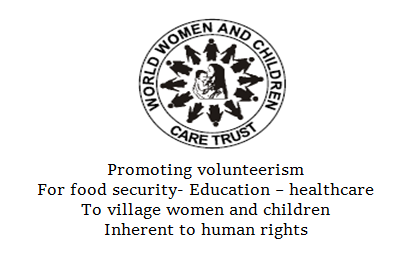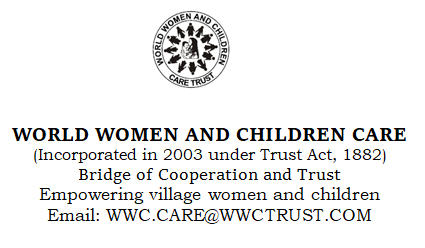
A……The volunteerism is not a new phenomenon. It has always been a part of civilized behavior. What is new is approaching voluntary action strategically as a mean of expanding resources, addressing issues and improving the quality of life. Governments, inter-governments and NGOs can positively affect the level and impact of volunteerism. Economic development through volunteers is a complex task although that brings many forms of expertise at the low cost. Volunteer efforts save money which is the key for cash-strapped communities. Volunteers also lightens load of paid staff as well as getting themselves trained as internees in multiple projects ultimately beneficial for future carrier.
A…….Striving to promote volunteers force to inculcate awareness and step-by-step introduction and adoption of world renowned technologies in food security enhancement sectors, rural infrastructure improvement, healthcare and education programs which are proactively and strategically mobilized by the American and European countries including Australia and China. The food security sector in third world countries is being dealt with by male and female farmers with decade old conservative systems which ultimately proved food shortage in Asian and South Asian countries according to FAO.
The village women of least developed Asian countries are responsible for food production other than male farmers. Those women farmers remain confined in their hutments and give birth to seven children with high infant mortalities rates of 105 per 1,000 including other childhood diseases, although she may not see them all grown up into adults. Likewise, village children while attain school going age those are found playing over streets and often abducted for child labor and raped.
The women living in rural areas also face multiplicity of tasks such as child rearing, taking care of kitchen, fetching water and collection of firewood for meal preparation. Also faces threats of communicable and infectious diseases due to poor environmental conditions. Only 38% of rural population of Asian and South Asian Regional countries has access to clean and drinkable water and 60% have sewage disposal facilities.
Besides caring of children other housework responsibilities are very extensive in rural areas where the breeding of farm animals, sowing and harvesting tasks for which women are in many cases solely responsible. In the conduct of such activities women even vanish from national statistic for agricultural production.
In accordance with perspective of economic development planners the women remain unrecognized and invisible. The economist planers claim that women living in rural areas and doing farming are classified as “house wives” and less than 4% are shown as working and looking for work to improve family life.
The village women are usually prevented from associating with men other than their closest relatives or their immediate family members. Secondly it is also very difficult for women to travel alone away from homes for taking advantages of advanced agricultural extension services and the modern food enhancement technologies. Government food production enhancement programs are staffed by men and some time they create obstacles in obtaining information and assistance to market her products and access to farm credit programs to boost productions.
In the year 1987 a Canadian delegation, comprising Canadian male and female farmers and farm commodities importers visited several Asian countries. The team members interviewed members of civil societies and government officials. They surveyed issues and identified potential projects for well beings of village women. It was observed that agriculture extension programs are oriented for “male farmers” only and none geared specifically for women. The Canadian delegates stressed need of female volunteers in agriculture extension agencies as they do in their country.
The American, Australian and Canadian Governments having enough financial and human capital resources train male and female volunteers to help local male and female farmers for enhancing food production and infrastructure improvement programs. Renowned NGOs send male and female volunteers in other countries to face flood, earthquakes, droughts and rehabilitation of widows and orphaned children of war affected areas.
APPEAL: The women and Children Care Trust “wcct” welcome new partners to join hands to contribute their efforts and realize that ability to read and write is fundamental for life in today’ world. One sixth of world’s illiterate rate comprise of women. Female education is strongly linked to economic development and health. Some 120 million children, most of them girls, do not attend school, in part because of hunger or stay at home, care for their siblings.
We constantly search for new investment opportunities. We make equity investment normally for minority shareholdings. In exceptional circumstances smaller investment may be considered. We make syndicates of other institutional investor in case of large investments.
